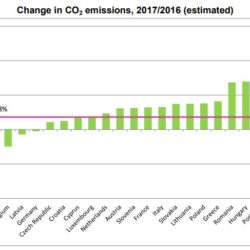A breakthrough for green hydrogen is not a given – decisive policy action is required
Green hydrogen would likely supply less than 1 % of final energy globally by 2035, while the European Union might hit the 1% mark a little earlier by about 2030. In particular, the EU’s 2030 plan to supply 10 million tons of green hydrogen with domestic capacity will be out of reach, unless policy makers Read more about A breakthrough for green hydrogen is not a given – decisive policy action is required[…]






